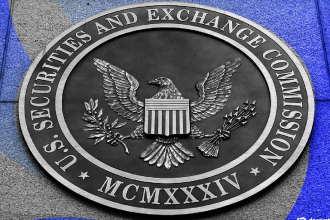Western Union Seeks Stablecoin Integration to Modernize Cross-Border Payments
In a strategy focused on modernizing its core service, Western Union is exploring the integration of stablecoins into its global payment network. The move reflects the company’s view of this technology not as a threat, but as a significant innovation opportunity.
Speaking during a Monday interview with Bloomberg, CEO Devin McGranahan emphasized stablecoins as a potential catalyst for enhancing the efficiency and functionality of Western Union’s services. He stated the company is actively exploring partnerships with major players in the cryptocurrency industry to develop stablecoin on-ramp and off-ramp services, alongside the integration of a digital wallet.
McGranahan framed stablecoins, despite the firm’s long history (175 years), as “yet one more opportunity to innovate,” firmly rejecting the notion of them posing a threat.
Potential Use Cases
Western Union outlined several potential applications for stablecoins within its infrastructure:
- Faster Cross-Border Transfers: Leveraging the potential speed advantages of blockchain technology.
- Fiat-to-Stablecoin Conversion: Offering seamless integration between traditional and digital assets.
- Store of Value in Unstable Economies: Providing a potentially more reliable alternative to local currencies during periods of high inflation or volatility.
A History with Crypto
Western Union’s exploration of stablecoins is part of an ongoing engagement with blockchain technology. The company previously filed for crypto-related trademarks in October 2022 and notably partnered with Ripple in 2015 to settle remittances using XRP, although that initiative remained in a testing phase for years. In 2018, the company publicly expressed interest in crypto but decided against adding crypto transfers to its main offerings at that time.
GENIUS Act Provides Regulatory Clarity
The renewed interest in stablecoins coincides with significant regulatory developments in the United States. The Government Evaluation of New Innovations in the US Act (GENIUS Act) was signed into law recently. This legislation establishes a national licensing framework for stablecoin issuers, demanding 100% one-to-one reserves, prohibiting unbacked algorithmic stablecoins, and extending Anti-Money Laundering (AML) requirements to issuers. Critically, it also classifies stablecoin holders as senior creditors in the event of an issuer’s insolvency.
Regulatory analysts, including Dante Disparte, Chief Strategy Officer at Circle, suggest the GENIUS Act also creates a more level playing field. He stated that it forces non-bank issuers to establish “a standalone entity that looks more like Circle and less like a bank,” potentially hindering the ability of established financial behemoths to dominate the emerging market. This is pertinent as traditional financial institutions show increasing interest in entering the stablecoin space.











